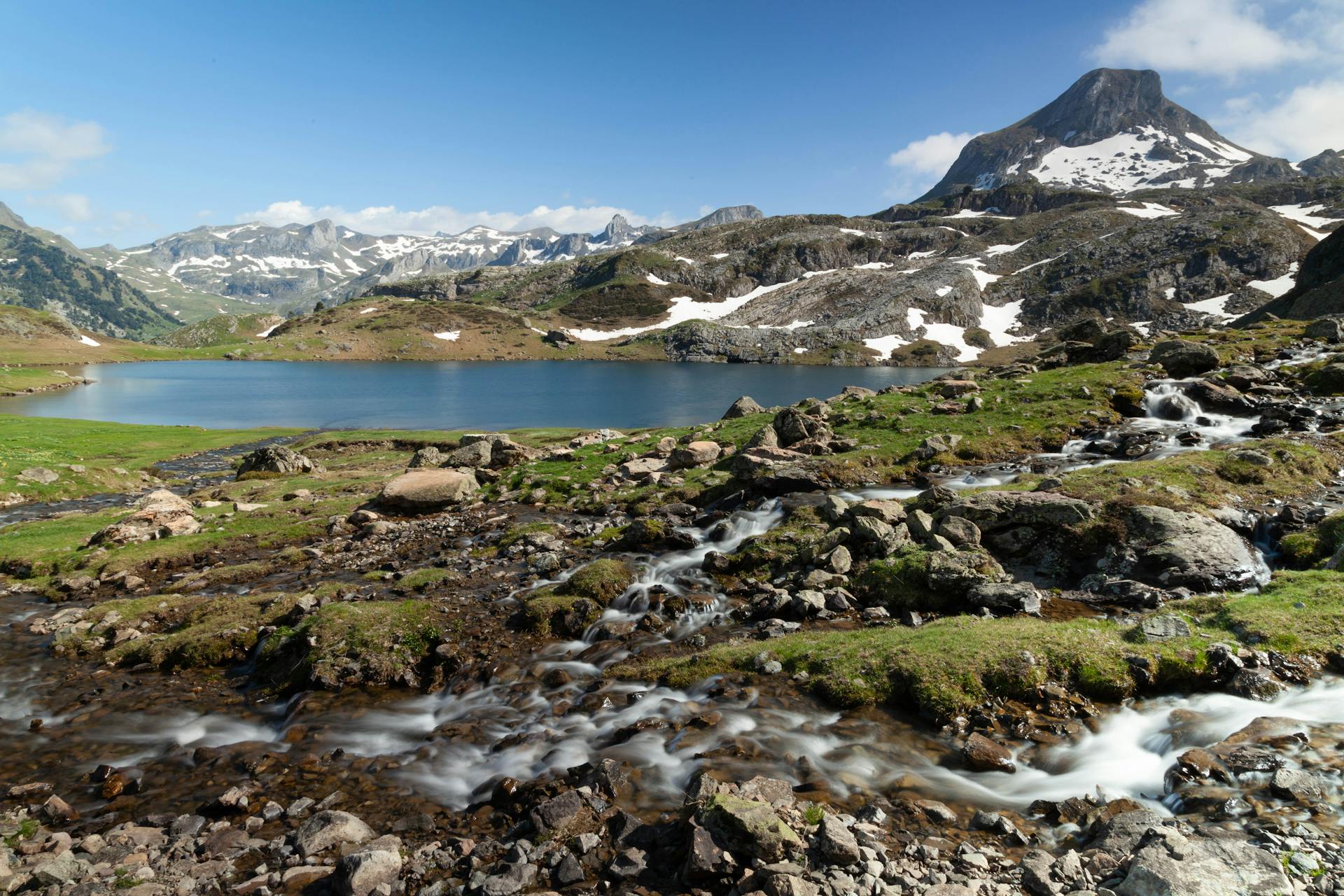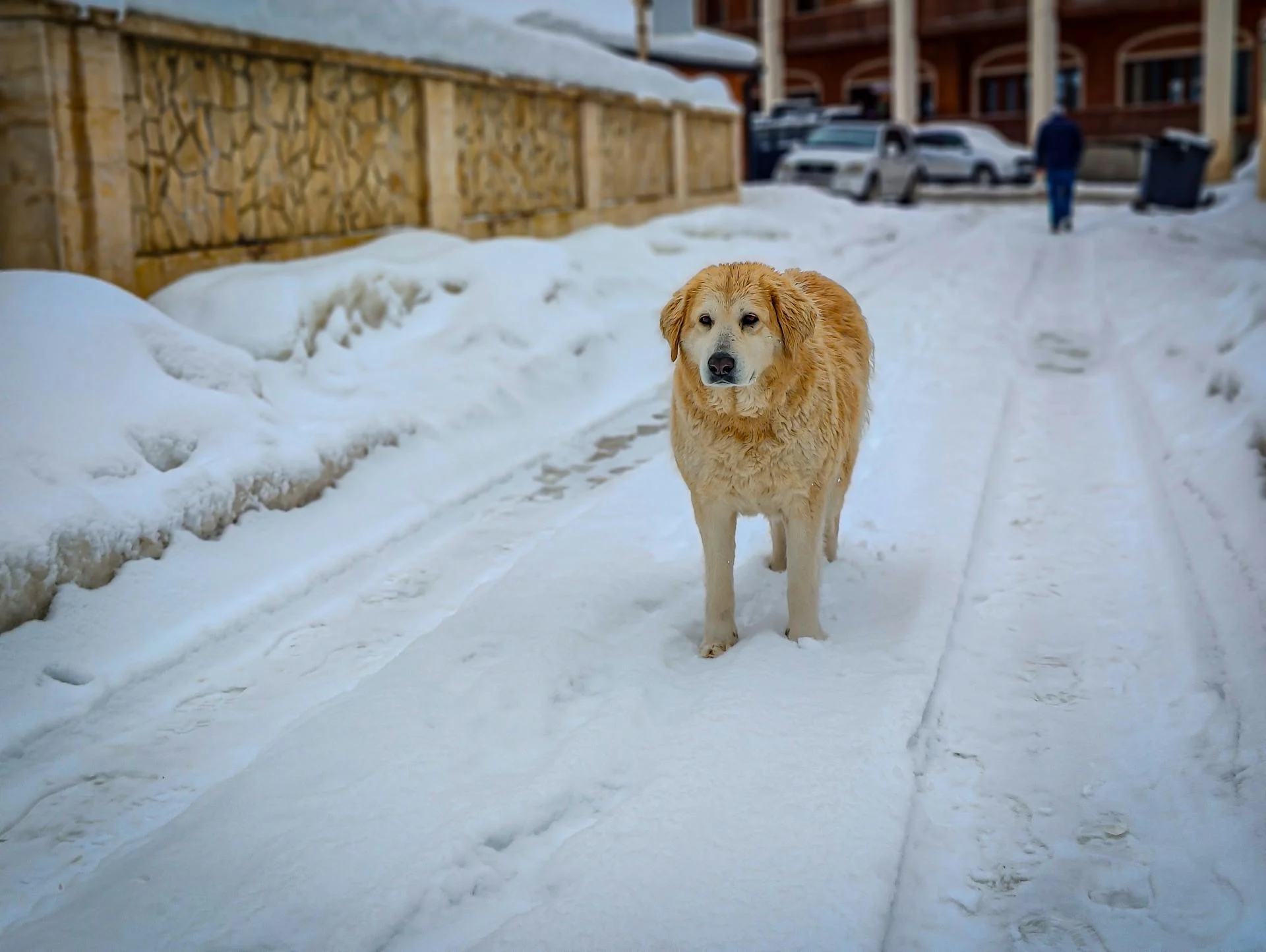
Great Pyrenees are a hardy breed, but they still require proper care and protection from the elements. They can live outside safely and healthily if provided with a suitable shelter.
Their thick coat can withstand cold temperatures, but they still need a dry place to escape the wind and rain. A well-built dog house or kennel can provide them with the necessary protection.
In regions with extreme temperatures, it's essential to provide them with adequate shelter and insulation to prevent heat loss or gain. A shelter with adequate ventilation is crucial to prevent the buildup of moisture and ammonia.
Great Pyrenees are naturally inclined to roam and may try to escape if they're not given enough space and exercise.
Can Great Pyrenees Live Outside?
Great Pyrenees are not ideally suited to living as indoor dogs only. They may develop destructive behaviors due to boredom and frustration.
They were bred for generations to be able to live outdoors in cold locations, so they enjoy spending their days playing and guarding their area. Living outside comes with unpredictable weather, unregulated temperatures, the possibility of wandering off, neighbors, etc.
You need to ensure your dog has access to water, food, protection from the wind and rain during cold weather, and a warm place to sleep. A Great Pyrenees will wander as far as possible, and if you don’t have a way to keep them in your yard, they are not suitable for living outdoors full-time.
The three most prevalent parasites your dog may encounter outside are heartworms, ticks, and fleas. Parasitic roundworms, known as heartworms, can enter your dog’s heart and ultimately cause death.
You’ll need to inspect your dog for tics almost daily to ensure there aren’t any attached to them, and use parasite preventives to keep them safe. Great Pyrenees typically bark to ward off predators and anything that moves, including other animals and cars.
A different take: How to Keep Great Pyrenees on Property
Factors to Consider
They're naturally inclined to be outside, having been guardians of livestock for centuries. Their large bodies and fluffy coats make them well-suited to withstand harsh conditions.
However, they can't tolerate extreme temperatures, so it's essential to take precautions to keep them healthy and comfortable during harsh weather. Your Great Pyrenees may even find it easier to adjust to the weather outside due to their large bodies and fluffy coats.
If you're considering keeping your Great Pyrenees outside, you'll need to ensure they have a safe and comfortable space to sleep, such as a dog house, especially during winter nights.
Additional reading: Doberman Pinscher Cold Weather
Location
Living in a rural area is ideal for Great Pyrenees owners because they have fewer neighbors to disturb with their barking. They make excellent watchdogs in these areas.
If you live in a city, you might have to keep your Pyrenees inside at night to avoid annoying your neighbors with their barking. This is because Great Pyrenees are naturally protective and will bark at anything that moves.
Great Pyrenees are not suited for living in areas with many predators, as they will bark to ward off any perceived threats. This can be a problem if you live in an area with a high concentration of wildlife.
If your yard isn't fenced, it's best to keep your Great Pyrenees inside to prevent them from wandering off and potentially getting into trouble.
Consider reading: Bichon Frise Barking Sounds
Age

As your Great Pyrenees grows, their needs and habits will change, and one of the most significant factors to consider is their age. At around 4 months old, your puppy can start spending most of their time outside, but they still need to come inside during inclement or dangerous weather.
Your puppy's age will also determine how much time they can spend outside at night. At 6 months old, they can be left outside for the night if they have access to food, water, and a warm place to sleep.
Intriguing read: Old Great Pyrenees
Weather and Temperature
The Great Pyrenees is an incredibly resilient breed, but like any living being, they do have their limits when it comes to weather and temperature. They can withstand the cold, but not the extreme cold.
Their double-layered fur provides excellent insulation, making them comfortable in temperatures ranging from 15° to 75° F. They'll even prefer to play outside in cold weather, but each dog has a different capacity for handling the cold.
Take a look at this: Great Pyrenees in Hot Weather
In extremely cold temperatures, it's essential to examine your Great Pyrenees for any underlying illnesses and be mindful of overgrooming, which can remove a layer of protection.
The Great Pyrenees can handle intense temperatures relatively well, thanks to their ability to reflect sunlight with their double-layered fur. The thick top layer of their coat serves as a reflecting layer, keeping them cool in hot weather.
However, they can still become too hot, so make sure they have a cool place to rest, especially during the day. If it's extremely hot, give your Great Pyrenees the option to go indoors and watch for signs of dehydration and excessive panting.
Here are some general guidelines for keeping your Great Pyrenees comfortable in different temperatures:
Final Thoughts
As you consider whether your Great Pyrenees can live outside, remember that they're typically tolerant of most climates. They're generally happier outdoors, but there are times when they may need to stay indoors with you. Great Pyrenees are adaptable dogs, but it's essential to consider your resources and your dog's health. You must weigh these factors against the climate you live in. Great Pyrenees can thrive in a variety of environments, but it's crucial to provide them with proper care and attention regardless of where they live.
Sources
- https://www.db-farms.com/beyond-the-barn/o2qv41rsnnivf9hee6x86xw3x03t5k
- https://www.motherearthnews.com/homesteading-and-livestock/livestock-guardian-dogs-great-pyrenees/
- https://www.littledeercreekfarm.com/great-pyrenees-faqs
- https://www.great-pyrenees-club-of-southern-ontario.com/inside-or-outside1.html
- https://www.hepper.com/can-the-great-pyrenees-live-outside/
Featured Images: pexels.com


